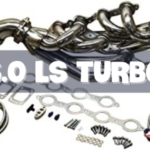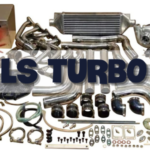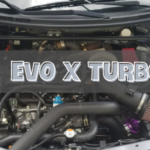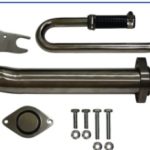Test Diesel Exhaust Fluid Quality with an At-Home Tester.
Diesel exhaust fluid (DEF) plays a crucial role in reducing emissions from diesel engines, but keeping it fresh can be challenging. In this article, we’ll explore easy ways to test DEF quality at home and ensure it’s protecting your engine and the environment.
What is DEF and Why is it Important?
DEF, also known as aqueous urea solution, is a non-toxic liquid added to diesel exhaust to break down nitrogen oxide (NOx) pollutants into harmless nitrogen and water vapor. Modern diesel engines require DEF to meet stringent emissions regulations. As DEF degrades over time, it becomes less effective at reducing NOx. Failing to maintain fresh DEF can damage your engine’s selective catalytic reduction (SCR) system and cause costly repairs. It’s important to periodically check DEF quality to catch issues early.
Common Signs DEF May Need Replacing
Several warning signs can indicate degraded DEF:
- Check engine light illuminated – This is usually the first sign DEF quality is compromised.
- Reduced fuel economy – Old DEF is less effective at NOx reduction, forcing the engine to work harder.
- Hesitation or sluggish acceleration – Clogged SCR components from degraded DEF impact performance.
- White or blue exhaust – A sign NOx reduction is compromised and more pollutants are escaping.
If you notice any of these symptoms, it’s time to test your DEF. Catching problems early prevents further damage.
Testing DEF at Home
Luckily, simple at-home DEF testers make checking fluid quality straightforward without a shop visit. Here are a few top-rated options:
Refractometers
Refractometers measure DEF’s refractive index, which correlates to urea concentration. Models like the [4-in-1 DEF Antifreeze Coolant Refractometer for Automobile Antifreeze System, Diesel Exhaust Fluid, Battery Acid and Windshield Washer Fluid] allow testing directly from the vehicle’s DEF tank or a sample bottle. Results compare to pass/fail thresholds.
Test Strips
Test strip kits contain strips that change color when exposed to DEF, indicating pass/fail for concentration and pH. The [B3C Fuel Solutions DEF 7-040-9 Diesel-Exhaust-Fluid Contamination Test Strips] includes multiple strips for multiple tests over time.
Digital Testers
More advanced digital testers like the [Urea and DEF Tester – Refractometer Digital Tester That Measures Accurately and Quickly-Brand: Anbachi] provide a numeric readout of DEF concentration and temperature. Bluetooth connectivity allows recording results in an app for tracking over time.
Any of these affordable testers let you quickly check DEF quality from home with just a small sample. Knowing the fluid is fresh prevents costly repairs down the road.
Testing DEF Yourself
To test DEF with an at-home kit:
- Gather a small sample from your vehicle’s DEF tank using the provided syringe or vial.
- Follow instructions specific to your tester, such as placing a drop or strip in the sample.
- Compare results to indicated pass/fail thresholds. Concentration should be between 30-50% urea.
- Record results for future reference. Test monthly during heavy use or every 3-6 months with infrequent driving.
- Replace DEF if it fails testing or is more than 6 months old. Use only DEF meeting ISO 22241 specifications for best performance.
With regular at-home testing, you can catch DEF issues before they cause expensive damage. Taking proactive care of this critical component protects both your vehicle and the environment.
Maintaining Fresh DEF
To keep DEF fresh longer between replacements:
- Store containers in a cool, shaded area away from direct sunlight, which can degrade the solution more rapidly.
- Use a funnel to minimize spills when filling, as exposure to air also accelerates breakdown.
- Top off the tank after each fill to eliminate air pockets.
- Consider installing an extended-life DEF filter if you drive infrequently, as stagnant fluid degrades faster.
With conscientious maintenance of your diesel’s DEF, you can feel confident it’s protecting your investment and reducing emissions as intended. Don’t neglect this important fluid – test and replace regularly for optimal performance and compliance.
Frequently Asked Questions (FAQ)
1. How often should I test the quality of my DEF?
It is recommended to test the quality of your DEF at least once every six months. However, if you notice any changes in engine performance or suspect contamination, it is advisable to test it immediately.
2. Can I use any at-home DEF tester?
While there are several at-home DEF testers available in the market, it is essential to choose a reliable and reputable brand. Look for testers that have been tested and approved by industry standards organizations to ensure accurate and reliable results.
3. What should I do if the test results indicate low-quality DEF?
If the test results indicate that your DEF does not meet the required standards, it is crucial to take immediate action. Drain the contaminated DEF from your vehicle’s storage tank and refill it with fresh, high-quality DEF. It is also recommended to inspect the SCR system for any potential damage.
4. Can I use the at-home DEF tester for other fluids?
No, at-home DEF testers are specifically designed to test the quality of DEF and may not provide accurate results for other fluids. It is best to use dedicated testers for each fluid you wish to test.
5. Are at-home DEF testers user-friendly?
Yes, most at-home DEF testers are designed to be user-friendly and provide clear instructions for performing the test. However, it is essential to read and follow the instructions carefully to ensure accurate results.
In Summary
By testing DEF quality at home using an affordable tester, you gain peace of mind that this critical emissions component is doing its job. Catching issues early prevents costly repairs down the road. With regular testing and careful fluid handling, you can keep your DEF fresh to protect both your diesel engine and the environment for many miles to come.






